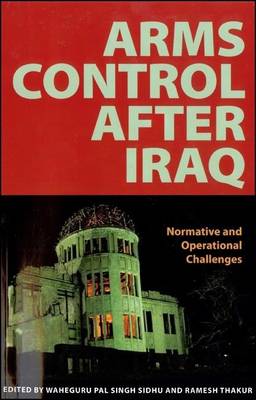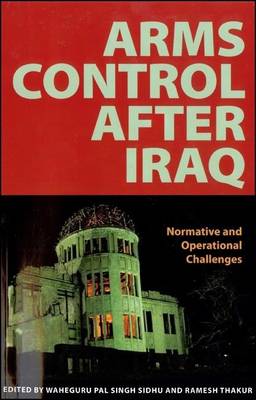
Bedankt voor het vertrouwen het afgelopen jaar! Om jou te bedanken bieden we GRATIS verzending (in België) aan op alles gedurende de hele maand januari.
- Afhalen na 1 uur in een winkel met voorraad
- In januari gratis thuislevering in België
- Ruim aanbod met 7 miljoen producten
Bedankt voor het vertrouwen het afgelopen jaar! Om jou te bedanken bieden we GRATIS verzending (in België) aan op alles gedurende de hele maand januari.
- Afhalen na 1 uur in een winkel met voorraad
- In januari gratis thuislevering in België
- Ruim aanbod met 7 miljoen producten
Zoeken
Arms Control after Iraq
Normative and Operational Challenges
Waheguru Pal Singh Sidhu, Ramesh Thakur
Paperback
€ 47,45
+ 94 punten
Omschrijving
Discusses the role of the UN in controlling the spread and use of WMDs, the regional dynamics of proliferation concerns in Northeast Asia and the Middle East, and issues regarding the use of force in general. This work also discusses the implications of a shift in the use of nuclear weapons from deterrence to coercion.
Specificaties
Betrokkenen
- Auteur(s):
- Uitgeverij:
Inhoud
- Aantal bladzijden:
- 560
Eigenschappen
- Productcode (EAN):
- 9789280811315
- Verschijningsdatum:
- 30/01/1999
- Uitvoering:
- Paperback

Alleen bij Standaard Boekhandel
+ 94 punten op je klantenkaart van Standaard Boekhandel
Beoordelingen
We publiceren alleen reviews die voldoen aan de voorwaarden voor reviews. Bekijk onze voorwaarden voor reviews.









